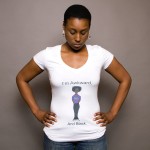A. Black
B. Black + Lesbian
C. Black + Gay
D. Black + Bisexual
E. Black + Transgender
If you had to choose one letter, which would you choose? Go ahead, pick your strife.
But know that it wasn’t a fleeting decision for Blake Brockington, a powerful, 18-year-old Black trans activist from North Carolina who committed suicide just last week. In an interview with the Charlotte Observer, Brockington said, “My family thinks this is a decision I made. They think, ‘You’re already black, why would you want to draw more attention to yourself?’ But it’s not a decision. It’s who I am. I wouldn’t wish this on my worst enemy.” The blunt reality for Blake Brockington, as a Black transgender man, was that he was fighting a fight for an intensely marginalized community while being misunderstood and marginalized by one that he should have been able to call his own.
During the Civil Rights Movement, Black masculinity became tantamount to a cohesive and united Black community, and hypermasculinity, manifested through violence, became a weapon utilized to defend this community from the attacks of white America. Masculinity, as a tool for resistance, relied on women as an “other” in order to distinguish itself. So, women and non-heteronormative queers within the Black community were silenced. To be transgender or gender non-normative was to uproot the structure that the Black community relied on.
Marlon Riggs, a gay African American filmmaker, put it best when he said, “What disturbs –no, enrages – me is not so much the obstacles set before me by whites, which history has conditioned me to expect, but the traps and pitfalls planted by my so-called brothers, who because of the same history should know better.”
Even many queer communities that have fought bravely to advance the long overdue rights and civil liberties of lesbian, gay and bisexual peoples have pushed their trans brothers and sisters to the sidelines. Too many times throughout history the “T” in LGBT has been forgotten, and still is today.
However, Blake’s suicide was unprecedented because he was an incredible activist, not because he was transgender or Black. A 2012 report from the National Coalition of Anti-Violence Programs claimed that transgender people of color were 2.59 times more likely to experience police violence and 2.37 times more likely to experience discrimination than their white, cisgendered counterparts. The report stated, “The intersection of racism and Transphobia can make these survivors and victims more vulnerable to violence and more likely to experience discrimination and violence from first responders.”
The American Foundation for Suicide Prevention presents absolutely heartbreaking and unacceptable figures of attempted suicides by transgender or gender non-conforming people: 41 percent have self-reported a suicide attempt, compared to the overall national 4.6 percent. Furthermore, at the highest rate, 46 percent of transgender men have reported suicide attempts. Just a month before Blake’s death, two transgender individuals, Ash Haffner, and an activist, Aubrey Mariko committed suicide, only two months after the suicide of Ohio transgender youth, Leelah Alcorn.
The nation should be overwhelmed. And with the Trans Murder Monitoring Project reporting that in 2012 a trans person was slain every 72 hours despite comprising less than one percent of the world’s population, so should the world.
These were the very statistics Blake Brockington was valiantly combatting, speaking passionately about some of the country’s most polarizing problems, all the while battling his own. Stepping into the national spotlight after having been crowned North Carolina’s first transgender homecoming king, Blake used this momentum to propel himself to the foreground of the trans movement.
He spoke at the 2014 Transgender Day of Remembrance in Charlotte and even led protests of police brutality against Black people. Blake was quoted telling the Charlotte Observer, “We have to address all these problems at once – misogyny, patriarchy, LGBT issues, race issues. We have to address everything at once if we plan to change the system at all.”
Even in his most powerful moments, inspiring huge groups of people to support the cause, Blake had troubles of his own that plagued his existence: “I’m waiting on a moment when me and my darkness split from my body.” Only a week before his death, Blake posted on his Tumblr account: “being in my head is like being a quarterback playing against an entire defensive line.”
Josh Burford, assistant director for sexual and gender diversity at UNC Charlotte, who worked with Blake, told the Charlotte Observer, “What happened to Blake is part of a systemic problem, especially for trans students of color. He didn’t quit. He didn’t give up… He’s a victim of what happens every single day to these kids.”
Blake Brockington was an extraordinary human being. His memory will live on throughout countless communities and his words will reverberate throughout the nation: “We [trans individuals] need support, not people looking down at us or degrading us or overlooking us.” Now is the time to start giving the trans community what it demands.
Stop glossing over the “T” and start promoting some fucking inclusivity. Being human is hard enough. Being neglected can be fatal.
by Jamar Williams


